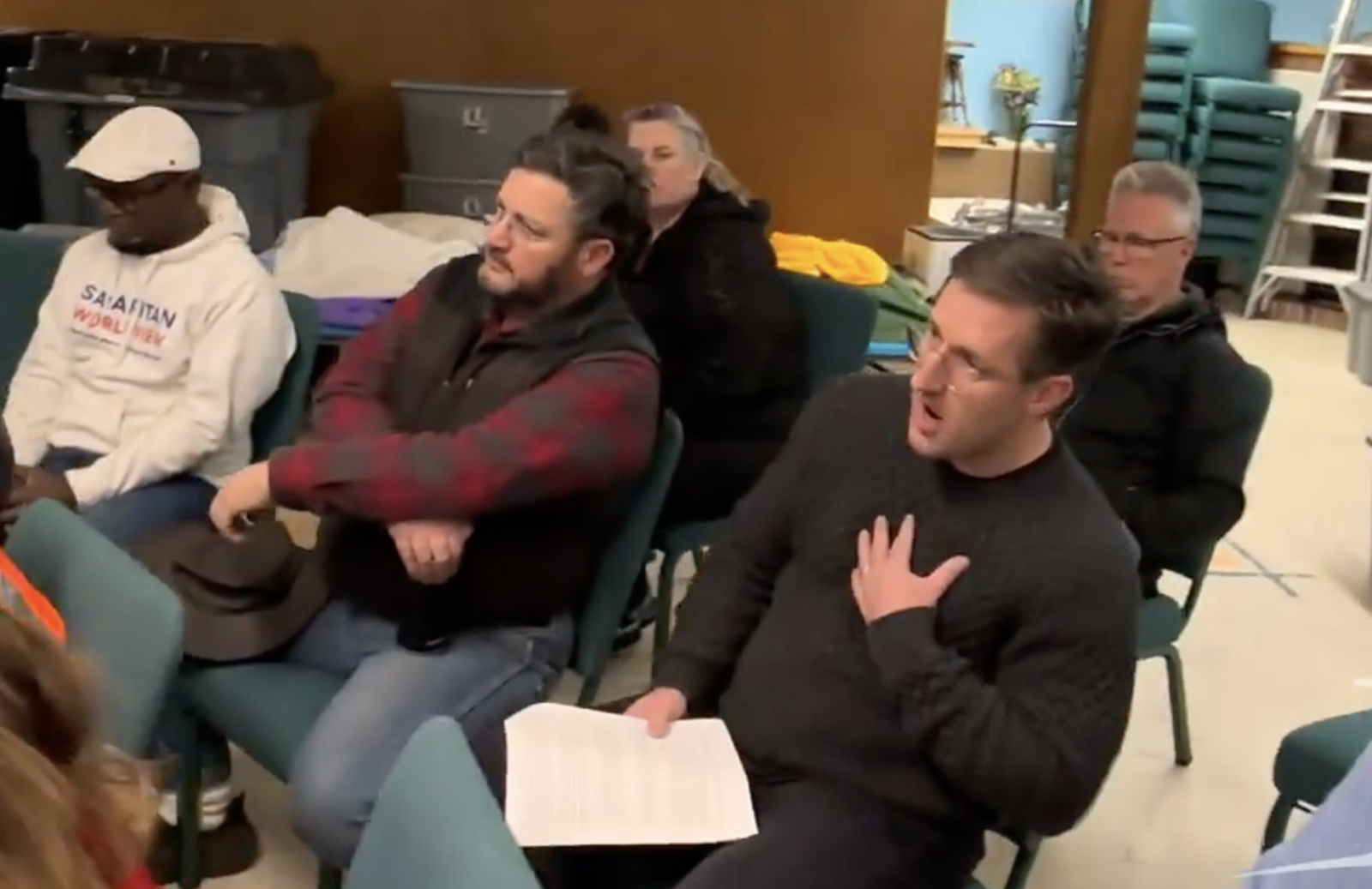Burien Neighbors Speak Out Against Low Barrier Shelter
View at TwitterExplosive Meeting
Despite intense opposition from neighbors, it appears Highline United Methodist Church will proceed with it’s homeless day shelter in Burien. Tuesday evening, Pastor Jenny Partch held one final public meeting to answer questions.
The vast majority of people in the room were concerned about public safety and more drug addicts coming into their community from places like Seattle.
However, Pastor Partch downplayed the potential risks and believes this will be a vital resource for people living on the streets. That did not sit well with neighbors and biz owners nearby. In fact the pastor got called out for living in Des Moines, several miles away from any potential problems overflowing from her day shelter in Burien.
Deputy Mayor Stephanie Mora, Councilmember Alex Andrade, and City Manager Adolfo Bailon were also in the attendance. Desperate neighbors begged them to stop the day shelter from opening. But at this point, it appears to be a done deal since the city council already voted to permit the shelter and drive federal funding into the program.
Doors are expected to open this coming Thursday and operate daily from 10am-4pm.
Code of Conduct
Here are the general guidelines for the day shelter.

The Drug Problem
This is considered “low barrier.”

Heated Conversations
Burien neighbor Frank Coluccio is a Navy veteran and got in several parting shots during Tuesday evening’s public meeting at Highline United Methodist Church in Burien.
“I’m sick and tired of organizations like yours using veterans as a prop.”
He says the day shelter at the church will be a disaster for neighbors and will not help homeless service members.
Nailed It
Every politician in Burien, King County, and the state of Washington must listen to Navy Veteran Frank Coluccio’s assessment of the homeless crisis in the region. This is clearly not just an affordable housing issue. Coluccio perfectly describes the drug addiction/crime cycle fueling homelessness in the region.
The homeless industrial complex does not want to solve this issue because hundreds of jobs and six figure CEO salaries at non-profits will disappear. Just like the pharmaceutical industry, maintenance medication is more profitable than finding a cure. Unless more residents get involved, vote, and hold their elected officials accountable, this will continue. The current plan is not working.
